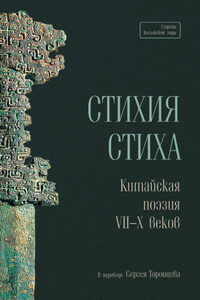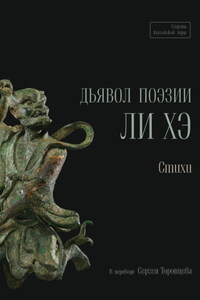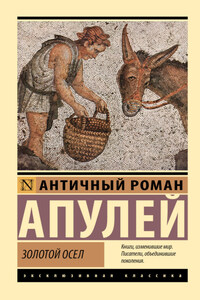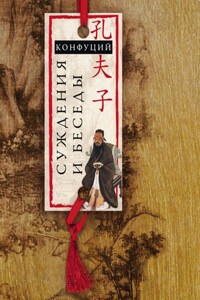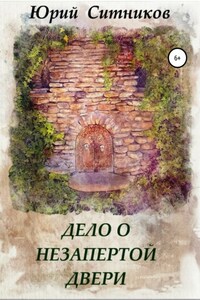'There! I do not think that the joys and sorrows of living in a little house under the shadow of a big one were ever more lucidly set forth,' says an elder sister, holding up the slate on which she has just been totting up this ingenious debit and credit account to a pink junior, kneeling, head on hand, beside her; a junior who, not so long ago, did sums on that very slate, and the straggle of briony round whose sailor-hat tells that she has only just left the sunburnt harvest-fields and the overgrown August hedgerows behind her.
'We have had a good deal of fun out of it too,' says she, rather remorsefully. 'Do you remember' – with a sigh of recollected enjoyment – 'the day that we all blackened our faces with soot, and could not get the soot off again afterwards?'
To what but a mind of seventeen could such a reminiscence have appeared in the light of a departed joy?
'I have left out an item, I see,' says Margaret, running her eye once again over her work; 'an unlimited quantity of the society of Freddy Ducane, when nothing better turns up for him! Under which head, profit or loss' – glancing with a not more than semi-amused smile at her sister – 'am I to enter it, eh, Prue?'
'Loss, loss!' replies Prue, with a suspiciously rosy precipitation. 'No question about it; no one makes us lose so much time as he! Loss, loss!'
Margaret's eyes rest for an instant on her sister's face, and then return not quite comfortably to the slate, upon which she painstakingly inscribes the final entry, 'An unlimited quantity of Freddy Ducane's society, when nothing better turns up for him!'
'"The acquaintance of several damaged fine ladies!"' reads Prue over her sister's shoulder. 'I suppose that means Lady Betty?'
'I name no names,' replies Margaret gravely. 'I keep to a discreet generality —
'"If it do her right,
Then she hath wrong'd herself; if she be free,
Why, then, my taxing like a wild-goose flies,
Unclaimed of any man."'
'Dear me!' repeats Prue, under her breath, in a rather awed voice; 'I wonder what it feels like to be damaged!'
'You had better ask her,' drily.
'I suppose she says dreadful things,' continues the young girl, still with that same awed curiosity. 'I heard Mrs. Evans telling you that she "stuck at nothing." I wonder how she does it.'
'You had better ask her,' more drily.
'Damaged or not damaged,' cries Prue, springing up from her knees and beginning to caper about the room, and sing to her own capering, 'we shall meet her to-night —
'"For I'm to be married to-day, to-day,
For I'm to be married to-day."
Or if I am not to be married, I am to go to my first dinner-party, which is a step in the right direction. Do you remember your first dinner-party, Peggy? How did you feel? How did you look?'
'I looked very plain, I believe,' replies Peggy sedately. 'At least, I was told so afterwards. I remember that I felt very swollen. I had a cold, and was shy, and I think both combined to make me feel swelled.'
'It is a pity that shyness has not the same effect upon me,' says Prue, stretching out a long girlish arm, whose thinness is apparent even through its chintz muslin covering. 'The one thing that would really improve my appearance' – stopping before the only looking-glass that the little room boasts, and putting her finger and thumb in the hollows of cheeks scarcely rounded enough to match the rest of the pansy-textured child face – 'the one thing that would really improve my appearance would be to have the mumps.'
Peggy laughs.
'Unberufen! I should catch them, and you cannot say that they would improve me.'
'Never mind!' cries Prue, turning away with a joyous whirl from the mirror. 'I shall do very well. There are people who admire bones! I shall pass in a crowd.
'"For I'm to be married to-day, to-day,
For I'm to be married to-day."'
Her dance and her song have carried her out into the garden – the small but now opulent garden; and, partly to look at her, partly to pasture her eyes upon a yet more admired object, Peggy has followed her as far as to the French window, and now stands leaning one handsome shoulder against the door-post, and looking out upon her kingdom of flowers.
'We owe the Big House one good thing, at all events,' she says, a smile of satisfaction stealing into her comely eyes. 'I never knew what peace of mind was until I had a garden-hose.'
At this moment, in the hands of Jacob the gardener, it is playing comfortably on the faces of the tea-roses, and a luxurious drip and patter testify to their appreciation.
Prue has come back panting, and sunk out of breath on the window-sill. The briony garland has fallen from her hat, and a little hairy dog is now galloping about the lawn boastfully with it, his head held very high. Something in his attitude gets on the nerves of the other animals; for the parrot, brought out to sun himself upon the sward, raps out his mysterious marine oath, which he generally keeps for a crisis; and the white cat forgets herself so far as to deal him a swingeing box on the ear as he passes her.


